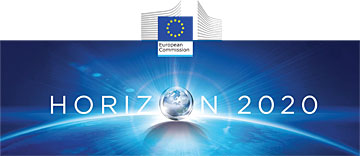
By Laura Greenhalgh
15 May 13
European finance ministers have pledged to provide an additional €7.3 billion of funding this year, to pay bills for EU programmes including Framework 7.
At a meeting on 14 May, member states gave their political agreement to the funds, stating they would be used for “measures to support economic growth, create jobs and tackle unemployment”.
The €7.3bn-allocation is the first batch of money designed to top up this year’s budget, and meet payments already committed under EU programmes. The Commission has previously estimated that €11.2bn will be needed in total, including €678 million for Framework 7 and €126m for education and the Erasmus programme.
Finance ministers said they would consider a second payment to make up the funds in mid-October. The first tranche of additional money was agreed under qualified majority by the member states, although five countries—the UK, Denmark, Finland, Sweden and the Netherlands—opposed the move.
The Council of Minister’s positive signal on the 2013 budget means discussions on the 2014-20 budget framework can continue as planned. MEPs had previously stated they would be unwilling to agree a package for the next seven years, until member states agreed to honour commitments for this year.
However, at yesterday’s meeting, finance ministers said the formal vote on the extra €7.3bn will be postponed until the Council of Ministers and the European Parliament reach an agreement on the overall seven-year budget.
At a press conference following the meeting, the Irish minister for finance Michael Noonan said: “As you know, these discussions [on the 2013 budget] have been linked by the European Parliament to the discussions on the multiannual financial framework. Whilst we regret this link, we acknowledge this is a political reality.”
“Both the European Parliament and the Council have agreed to the principle that ‘nothing is agreed until everything is agreed’”, stated the Council.
Discussions on the overall budget from 2014-20 began on Monday 13 May. EU representatives have said a swift agreement will be vital to prevent delay to programmes such as Horizon 2020, set to begin in 2014.
The president of the Committee of the Regions, Ramon Luis Valcárcel, welcomed the announcement of an extra €7.3bn, but emphasized the importance of a second top-up later this year. “Regions and cities need to be reimbursed for the money they have already spent on EU-funded projects,” he said.
However, MEP Ivailo Kalfin referred to the agreement as a “no-go” on Twitter, criticising the finance council for only agreeing to part of the additional budget and making it conditional on the Parliament’s consent on the MFF.
“Ridiculous, these are funds legally due,” he wrote.
Source: http://www.researchprofessional.com/0/rr/news/europe/framework-7/2013/5/eu-agrees-top-up-for-2013-programmes.html




